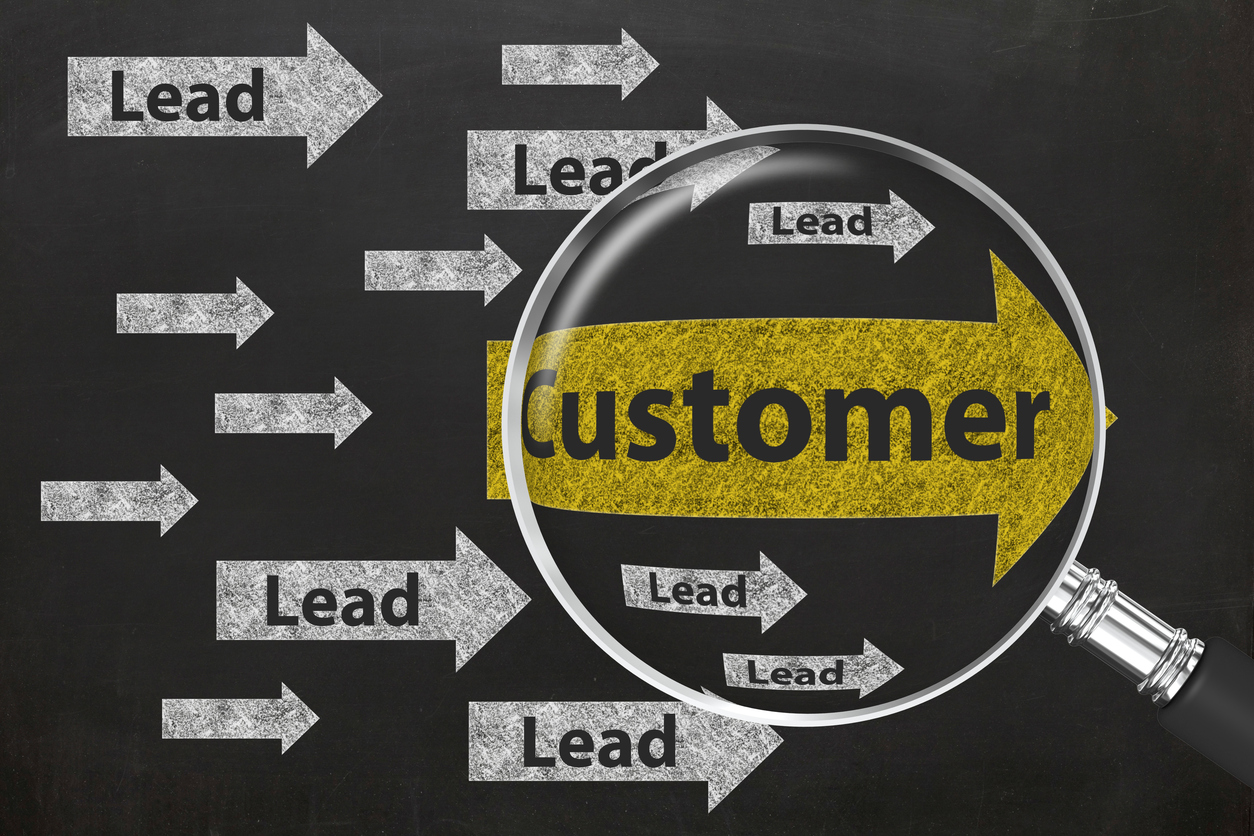TABLE OF CONTENTS
In today’s competitive market, the role of a sales manager has never been more critical. With an average sales close rate of 29% in 2023, this emphasizes the need for sales managers to refine their team’s techniques to maximize closing opportunities
To stay ahead, sales managers must constantly evolve. They must refine their strategies and sharpen their skills. Effective sales manager training is the key to unlocking their full potential and driving exceptional sales performance.
Proper managerial skills development is essential for sales growth. It can also help you innovate effective sales techniques. Learn more about the importance of leadership training below.
Set Clear Goals and Expectations
Setting clear goals and expectations is crucial in sales manager training. It ensures everyone knows what they need to achieve and how their level of success will be measured. Clear goals provide direction and focus for the team.
Regular reviews allow for tracking progress and offering feedback. This helps in sales team management. This clarity motivates team members to work towards common objectives.
It also helps in identifying areas needing improvement and celebrating achievements. When goals are well-defined, it reduces confusion and enhances productivity.
Effective leadership training emphasizes the importance of clear communication about goals to align efforts. In doing so, it ensures everyone understands their role in achieving success.
Invest in Training and Development
Investing in training and development plays a vital role in sales manager training. It fosters a culture of growth and adaptation within sales team management. Continuous learning ensures that the team stays updated on effective sales techniques and industry trends.
Ongoing training sessions improve managerial skills development. They focus on effective sales techniques like communication and negotiation. Skill development programs build confidence and competence among team members.
Providing resources for advanced sales training equips them with tools to handle complex challenges. This investment in learning supports career progression and job satisfaction. It also strengthens team cohesion and performance.
Effective leadership training includes mentoring to nurture talent and enhance leadership capabilities. This leads to a dynamic and skilled sales force.

Leverage Technology
Technology plays a key part in sales manager training as well. Around 77% of sales professionals stated that their organization was planning on investing more in sales tools like CRMs. Using Customer Relationship Management (CRM) systems can help organize customer interactions and sales pipelines.
This can greatly aid in sales team management. These tools track progress and highlight areas for improving effective sales techniques. Digital tools boost productivity and efficiency in managerial skills development.
Sales analytics give insights into customer behavior and trends. They guide advanced sales training strategies. As a result, it fosters data-driven decisions and team communication.
Integrating technology in leadership training modernizes sales operations and promotes ongoing improvement.
Motivate and Incentivize
Motivating and incentivizing your sales team is essential. Businesses that utilized a sales incentive program reported a 79% success rate in achieving their goals when a reward was offered. Incentive programs that reward top performers boost morale and sales team management.
Recognition of individual achievements fosters teamwork. It also encourages a competitive spirit. Celebrating successes helps create a positive work environment in effective sales techniques.
Setting clear goals and rewards motivate team members to strive for excellence. Incentives such as bonuses, prizes, or employee recognition events enhance motivation and dedication in advanced sales training.
Implementing regular feedback ensures everyone feels valued. It encourages ongoing improvement in leadership training.
Enhance Communication
Communication in a sales environment is integral to sales success. Holding regular meetings ensures team alignment and clarity. Open communication fosters an environment where ideas can freely flow and everyone has a voice.
It’s also beneficial to developing effective sales techniques. Team members feel valued and motivated when their voices are heard. This is an especially important element for managerial skills development.
Clear and concise communication reduces misunderstandings and improves efficiency. Using feedback loops allows for continuous improvement in leadership training.
Encouraging open dialogue and active listening enhances overall team cohesion and performance. Communication tools like video conferencing and messaging apps facilitate quick exchanges of information. They also enable effective communication among team members.

Optimize Sales Processes
Optimizing sales processes is fundamental in sales. Focus on streamlining workflows and removing bottlenecks. This aids in enhancing sales team management efficiency and improving overall performance.
By identifying and eliminating unnecessary steps, teams can focus more on effective sales techniques. Standardizing best practices ensures consistency and operational efficiency. Automation tools help streamline repetitive tasks, freeing up time for strategic initiatives.
Regularly review and update these processes to make sure they remain effective and aligned with current market trends. Clear documentation and training on updated processes ensure team members are well-prepared.
This approach fosters a proactive and agile sales environment. It enables teams to adapt quickly to changing customer needs and market demands.
Provide Adequate Resources
Providing adequate resources is paramount in sales manager training. Marketing support ensures the sales team has access to up-to-date materials and strategies. This is essential for effective sales team management.
Examples of these resources include:
- Promotional materials
- Market research tools
- CRM systems
- Training programs
- Sales tools
- Presentation software
- Professional development opportunities
Sales tools such as CRM systems are vital to customer relationship management. Presentation software is integral to effective sales techniques. These tools streamline processes and enhance managerial skills development.
Adequate training programs equip the team with the knowledge and skills needed to improve sales performance. Ongoing support and professional development opportunities allow sales teams to further hone their skills over time.
Providing access to these resources empowers your team to perform at their best. This contributes to overall sales success and customer satisfaction.
Focus on Customer Relationships
Good customer relationships are a key component in sales. Without your customers, there would be no sales. Building strong connections ensures customer loyalty and repeat business.
You need to understand their needs first. This will help you tailor effective sales techniques to meet these needs. Providing personalized service makes customers feel valued and understood.
Regular communication shows you value their feedback and concerns. It’s essential to listen actively and empathize with their challenges. Addressing their queries promptly enhances satisfaction.
This customer-centric approach fosters trust and long-term partnerships. It not only boosts sales but also strengthens your brand reputation. Teaching empathy and communication skills in managerial development enhances these interactions.
Foster a Positive Team Culture
Your sales team is more than just your employee base. They’re the driving force behind your success and the ambassadors of your brand. Fostering a positive team culture is imperative for improving sales performance.
Encourage open communication and trust among team members. Conducting regular team-building activities enhances sales team cohesion. Recognize and celebrate achievements to boost morale and promote a supportive environment where everyone feels valued.
Encourage collaboration and sharing of effective sales techniques. Provide opportunities for professional growth through advanced sales training and leadership training. Address any conflicts promptly and fairly to maintain harmony.
A positive culture improves productivity and job satisfaction. It also reduces turnover and attracts top talent. This approach leads to a motivated and high-performing team.

Emphasize Time Management
Only about 39% of a sales rep’s time is spent selling or interacting with prospects and customers. The rest of their time is often spent on administrative tasks, meetings, data entry, lead generation, and other non-selling activities.
Time management helps maximize selling time by prioritizing tasks and reducing time spent on non-essential activities. Teach prioritization to focus on high-impact tasks and limit distractions.
Use tools like calendars and task lists to organize daily activities. Break larger tasks into smaller, manageable steps. Encourage the importance of setting clear, achievable goals to improve sales performance.
Employ Personalized Coaching
Employing personalized coaching is a prime way to boost sales team management. Tailor coaching sessions to individual strengths and weaknesses of your sales team. Ensure coaching sessions are constructive and motivating.
Focus on enhancing effective sales techniques through targeted practice and role-playing. Use real-life scenarios to illustrate concepts and improve managerial skills development. Provide specific feedback to improve your sales teams’ techniques and selling strategies.
Remember to offer encouragement and support during coaching sessions. Adapt coaching strategies based on each team member’s learning style and preferences. Address any challenges promptly and provide workable solutions.
Set achievable goals and track progress regularly. Personalized coaching fosters confidence and skill development. This can lead to long-term success within the sales team.
Enhance Product Knowledge
If your sales team doesn’t fully understand the products they’re selling, this can negatively impact sales success. A knowledgeable sales team will be more confident. Therefore, it’s imperative to provide comprehensive training on aspects such as:
- Product features
- Key benefits
- Use cases
- Competitive advantages
- Customer pain points
- Objection handling
Ensure the sales team understands the competitive landscape and market positioning of your products. Regularly update product information to reflect changes and innovations. Use case studies and customer testimonials to illustrate product value.
Encourage questions and discussion among your sales team to further their understanding. Foster collaboration with product development teams to stay informed about updates and improvements.
Mastery of product knowledge instills confidence in building effective sales techniques. It also bolsters credibility with customers.
Develop a Strong Onboarding Process
An effective onboarding process and sales manager training work in tandem. A strong onboarding process sets the foundation for long-term success and retention within the sales team.
Start by outlining clear objectives and expectations for new hires. Provide comprehensive training on products, services, and sales team management tools.
Introduce them to your company culture and values to foster belonging. Assign mentors to guide and support them during the onboarding process. Use feedback loops to assess understanding and address any gaps promptly.
Incorporate role-playing and real-life scenarios to simulate effective sales techniques. Provide hires with access to necessary resources and technology. Evaluate the onboarding progress regularly and adjust as needed.
Utilize Customer Segmentation
Customer segmentation can help you target your marketing efforts more effectively and increase sales. Tailor your marketing strategies to specific customer segments. Segment customers based on key factors like:
- Demographics
- Behaviors
- Needs
- Preferences
- Purchasing patterns
- Geographic locations
Analyze segment data to identify trends and opportunities. Personalize your communication efforts to address unique preferences and challenges. This approach increases customer satisfaction and loyalty.
You can improve sales techniques by understanding these distinct segment preferences and pain points. Targeting high-value segments will help allocate resources more efficiently.
Sales management training empowers teams to adapt strategies for different segments. It also optimizes sales performance.

Monitor Competitors
Sales managers must stay informed about competitor data. This includes everything from products to pricing and marketing strategies. Analyze their strengths and weaknesses to identify opportunities to improve on your own sales manager training.
Regularly update these competitive analyses to stay ahead and optimize effective sales techniques. Use industry benchmarks to compare performance metrics. Adjust your sales strategies based on these competitive insights to maintain a competitive edge.
Foster a culture of awareness and adaptability within managerial skills development. Utilize tools and resources to track competitor activities and market trends. Proactively respond to any changes in the competitive landscape to maximize your sales opportunities.
Measure and Analyze Performance
Evaluating and analyzing performance plays a critical function in sales manager training. A good sales manager can easily identify strengths and areas needing improvement in sales team management.
Analyze sales data to understand trends and opportunities for effective sales techniques. Use key performance indicators (KPIs) to track sales metrics and goals. Regularly review individual and team performance against these targets.
Adjust strategies based on performance insights to optimize results. Provide constructive feedback and coaching based on performance reviews. Foster a culture of accountability and use managerial skills development for continuous improvement.
Effective measurement and analysis drive informed decision-making to enhance your overall sales performance.
Discover More Sales Management Training Insights at Results Driven Leadership Today
Sales management training is the guiding force that empowers teams to excel in achieving sales performance. With the right leadership training, sales teams can enhance their skills and foster teamwork. This will allow them to develop effective sales techniques to drive revenue growth.
Results Driven Leadership offers real leadership and real results for your business. We serve a range of different industries from technology to healthcare, finance, and retail with a focus on instilling universal leadership skills.
We help develop managers into leaders and create a long-lasting culture of high performance. Contact us today for a free consultation.





